
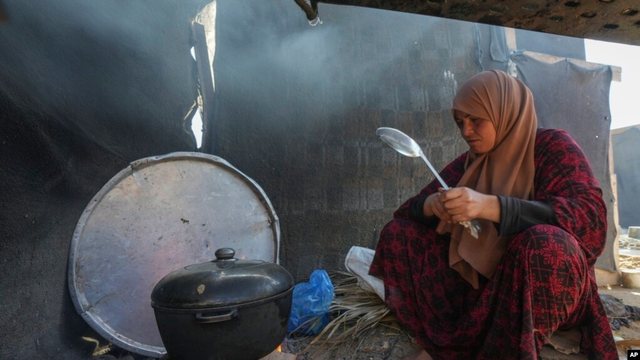
As talks to release hostages and reach a ceasefire agreement in the Gaza Strip resume, winter is set to make life difficult for two million Palestinians. Displaced residents in southern Gaza are worried about the consequences of the drop in temperatures.
Like many other Palestinians in the Gaza Strip, the Abu Maryam family lives in a tent in al-Mawasi, an Israeli-designated safe zone in southern Gaza.
Etimad, her husband Aref and their two grown children fled their home in northern Gaza and have been displaced five times since the start of the war between Israel and Hamas last year.
They are worried about the difficulties that winter will bring.
"The arrival of winter and the rains is scary. We live in tents, which cannot withstand the rain."
Etimad Abu Meryam says basic hygiene is almost impossible in tented shelter camps.
"There is no cleanliness. I try to organize and clean all day, but it is very difficult. Insects and rats have spread here, which are damaging clothes, bedding and food."
Maryam's husband says that rain was once seen as a blessing for Gazans, especially farmers. But now, he says, it is a curse.
"In the past we used to pray for rain and thank God when it rained. But now we pray that it doesn't rain, because we live under a plastic tent. Everything has turned against us. Even agricultural land is now being used to put up our tents," he says.
Winter is coming as Gaza's humanitarian crisis worsens.
The health care system is struggling and the UN agency for Palestinian refugees says there is not enough food for the population of more than 2 million, especially those in northern Gaza.
"There is a real risk as we are entering winter again. People's immune systems are much weaker in winter. We are entering a situation where hunger or malnutrition, unfortunately, could again be problems for the displaced. This could have been avoided," says Philippe Lazzarini, commissioner of the UN Agency for Palestine Refugees.
Israel recently severed ties with the UN Agency for Palestinian Refugees, accusing some of its employees of participating in the October 7 attack on Israel.
The Israeli military says it allows sufficient amounts of international aid into the Gaza Strip through its checkpoints and that the problem lies in its distribution within Gaza.
"Today we have more than 800 trucks waiting for the international community to send them inside Gaza," says Abdullah Halabi, an Israeli military official for humanitarian aid.
For the Abu Maryam family, it doesn't really matter who is responsible for the lack of help.
They are facing another cold and rainy winter in a tent, not knowing when they will be able to return to their home. /VOA
Latest news


Morning Post/ In 2 lines: What mattered yesterday in Albania
2025-05-24 08:00:34




Tirana Lake Park, a campaign center for Noizy. The signatory is silent
2025-05-23 21:55:02


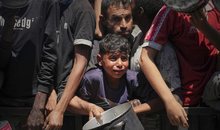
What's happening in Gaza, the struggle for survival in times of war in pictures
2025-05-23 21:02:54
DW: Germany strengthens the return of illegal migrants!
2025-05-23 20:39:57
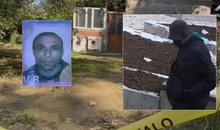

Knife attack at Hamburg train station, 12 injured
2025-05-23 19:54:58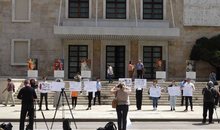
120 children go missing every year in Albania, 12 still missing in 30 years
2025-05-23 19:35:35
US court suspends order banning Harvard from admitting foreign students
2025-05-23 19:22:41
Zodiac signs that become luckiest after the third decade of life
2025-05-23 19:19:06
Igli Tare officially appointed as Milan's new Sporting Director
2025-05-23 19:01:12
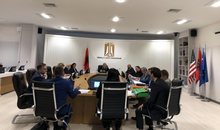



Istanbul Agreement, Ukraine and Russia exchange 800 prisoners
2025-05-23 17:54:20



Belina Pupa reacts to serious accusations in Australia for drug cultivation
2025-05-23 16:59:55


The Llogara tunnel opens tomorrow, until when will it be free of charge?
2025-05-23 16:09:31





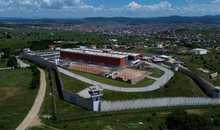
The first prisoners from Denmark are expected to arrive in Kosovo in April 2027.
2025-05-23 14:51:26
May 11/ Celibashi approves the summary tables of results for 4 districts
2025-05-23 14:50:04
Trump threatens tariffs on EU goods and iPhones
2025-05-23 14:39:47
Artan Lame passes away, his mother confirms: This cursed moment came
2025-05-23 14:26:48
Divorce map in 61 municipalities, the South far ahead of the North
2025-05-23 14:15:16
2-year-old Dutch boy falls from third floor of Rinas hotel, taken to hospital
2025-05-23 14:01:40
Europeans, you have slandered us.
2025-05-23 13:54:00
Vlora/ He hit the minor and fled the scene, the 27-year-old woman is wanted
2025-05-23 13:41:24
Arrested today in Lalëz, who is Flobens Meçja, was paid by Çopja to kill Alibej
2025-05-23 13:33:43
Here's how many hours you should sleep depending on your age
2025-05-23 13:32:16
Berisha reveals when he will leave politics
2025-05-23 13:12:15
Three proven ways to dismantle an autocrat
2025-05-23 13:03:16
"The goods are 800-cents", how Altin Morina trained RENEA and made bargains
2025-05-23 12:59:07
Berisha: Poja was Rama's guest, Surreli was used for gang meetings
2025-05-23 12:49:22



Meta: The criminal regime destroyed the elections, a threat to democracy
2025-05-23 12:16:48



From money to betrayal, everything turns upside down for these three signs
2025-05-23 11:32:44



Albanians, the second most rejected at EU borders in 2024
2025-05-23 10:41:04




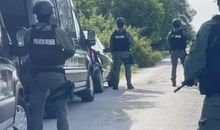
RENEA action in Durrës, checks mainly in Sukth and Shijak
2025-05-23 09:33:13


Foreign exchange, May 23, 2025
2025-05-23 08:47:28

Horoscope, what do the stars have in store for you today?
2025-05-23 08:15:27
Temperatures are rising, what is the weather expected to be like during the day?
2025-05-23 08:01:25
Morning Post/ In 2 lines: What mattered yesterday in Albania
2025-05-23 07:48:25

Diaspora vote, Berisha: The envelopes were filled in Albania
2025-05-22 22:45:58
"Notify the DEA", Abilekaj: Internationals do not trust our institutions
2025-05-22 22:30:07
Operation "Bridge", journalist: SPAK was used as an election certifier
2025-05-22 22:07:35
Berisha: Rama won 28 mandates with criminal gangs
2025-05-22 21:58:18

Fevziu clarification for Artan Lamen: He is still alive, but in a coma
2025-05-22 21:44:33


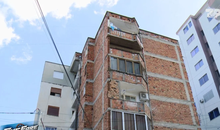

Which of the punitive measures has the EU started to remove from Kosovo?
2025-05-22 20:49:38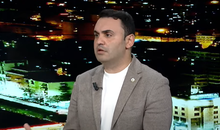
Këlliçi: SPAK acted after the elections, directed by Rama
2025-05-22 20:42:10



EU Integrity for Sale: Tirana Edition
2025-05-22 19:51:52
Plane crashes into homes in San Diego, California, several casualties reported
2025-05-22 19:49:43
May 11th Elections, Source: With the Bulgarian Train, he wins 300 thousand votes
2025-05-22 19:34:16
Citizens pay out of pocket for health funds at the lowest level since 2017
2025-05-22 19:21:43
After three terms/ Erdogan: He will not run for president again
2025-05-22 19:08:35

SPAK seized two properties in 'Kodra e Diellit', Veliaj and Xoxa's lawyers react
2025-05-22 18:42:25
